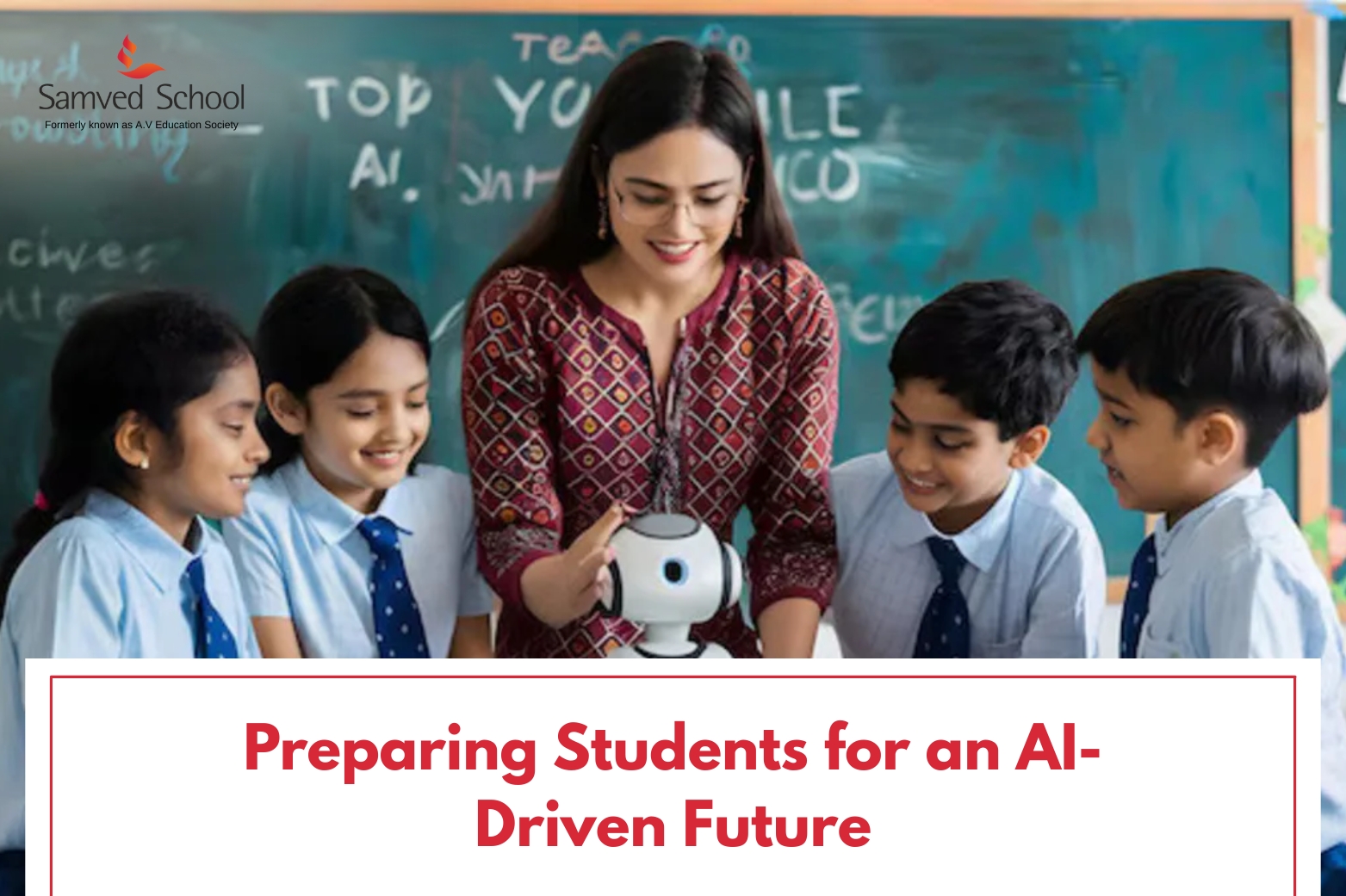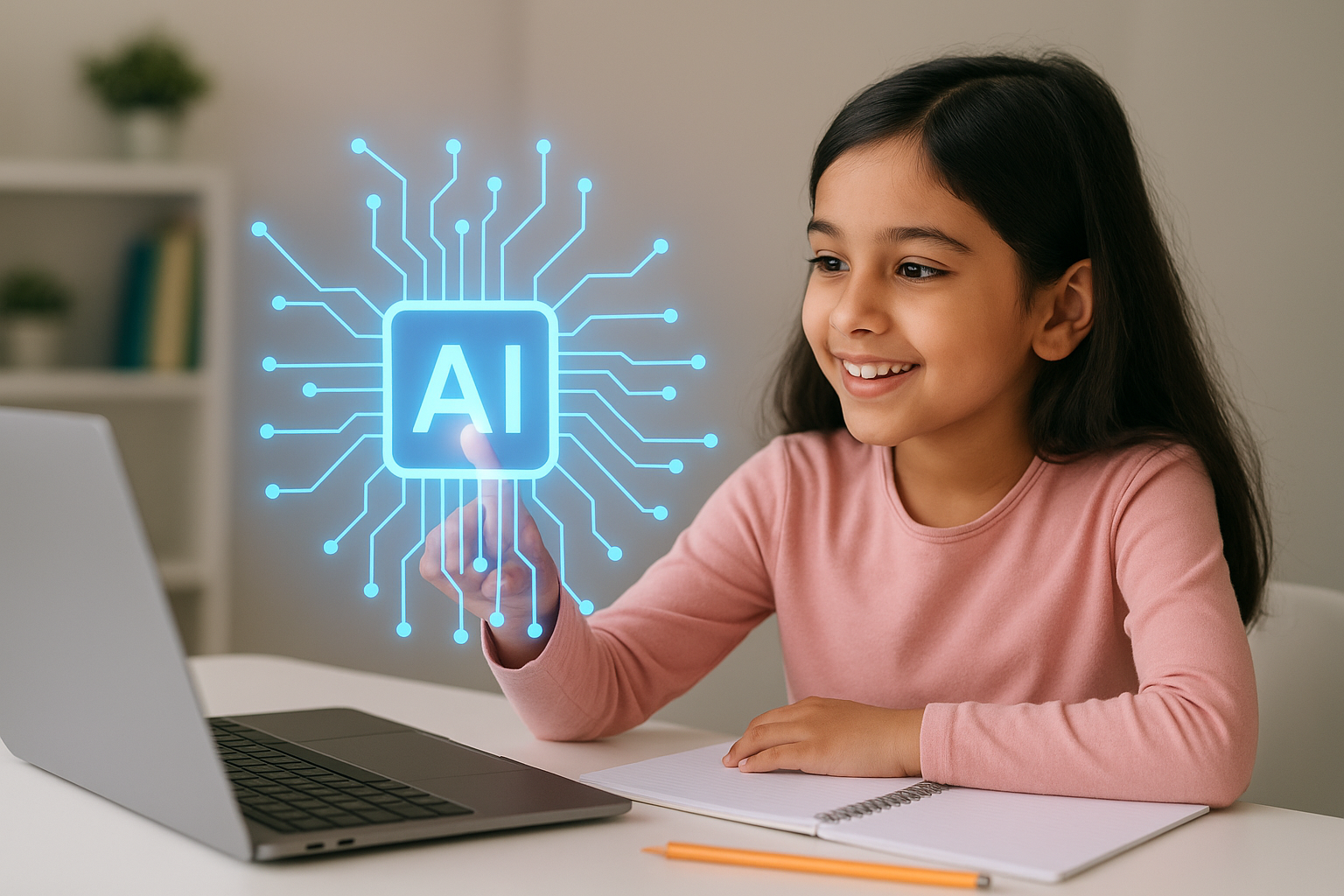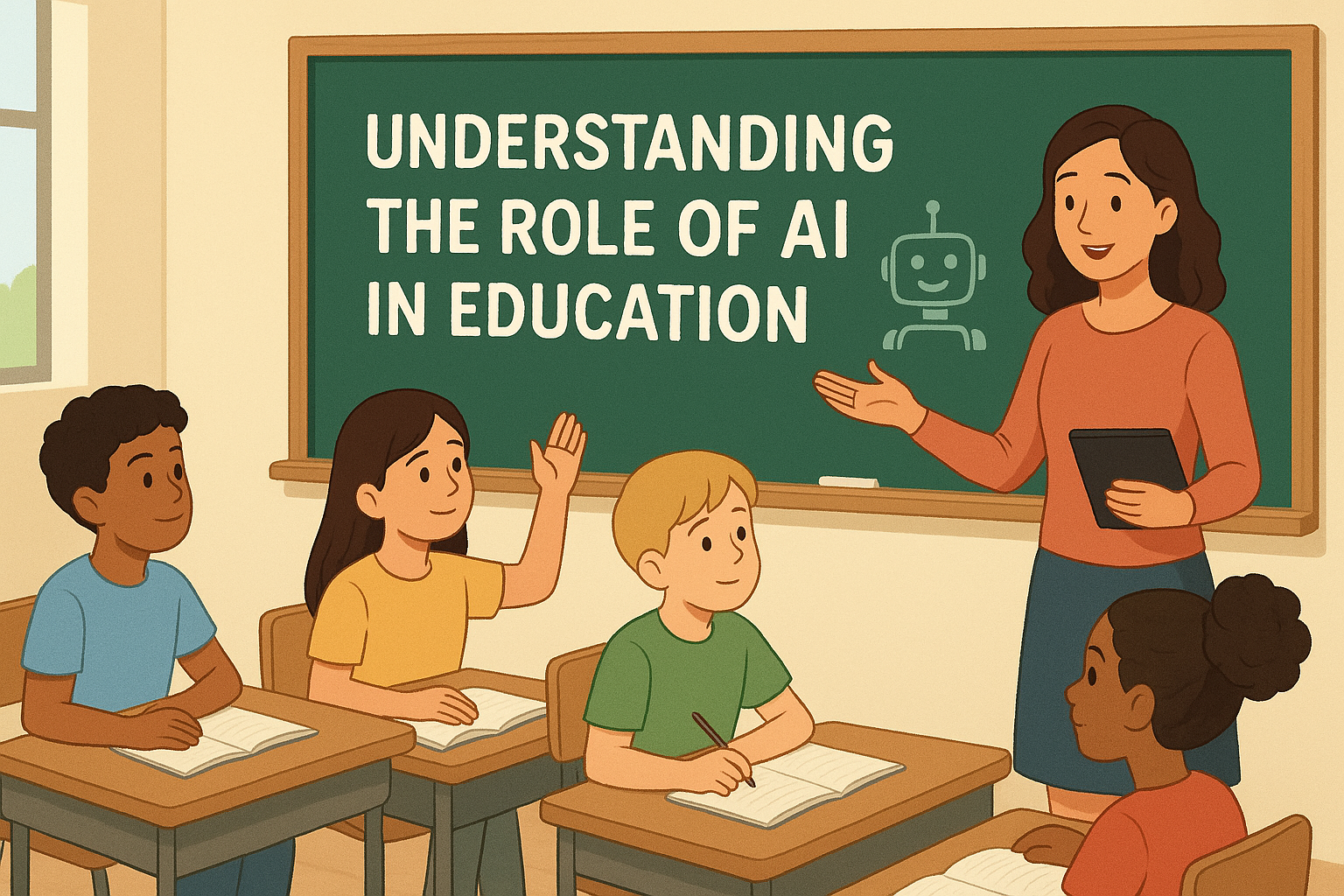Preparing Students for an AI-Driven Future

In an age defined by rapid technological advancement, Artificial Intelligence (AI) has moved beyond being just a buzzword—it’s now a vital part of how we live, learn, and work. From virtual assistants to smart classrooms, AI is influencing every sphere of our lives.
For schools, the challenge and opportunity lie in preparing students to not just use AI but to understand and innovate with it responsibly.
Education is no longer just about memorization—it’s about nurturing curiosity, adaptability, and critical thinking. As AI transforms industries and career paths, schools must evolve to equip students with skills that will make them future-ready global citizens.

- Understanding the Role of AI in Education
Artificial Intelligence is changing the educational experience in remarkable ways. It’s no longer limited to digital learning platforms; it’s transforming classroom interactions, assessments, and personalized learning.
AI-powered tools can analyze a student’s strengths, weaknesses, and learning pace to create customized study plans.
For teachers, AI acts as a support system—automating routine tasks such as grading and attendance tracking—allowing them to focus more on individual student development.
When used effectively, AI empowers educators and enhances teaching quality.
Moreover, through real-time analytics, schools can gain deeper insights into student performance and implement data-driven interventions to ensure no learner is left behind.
- Building Digital Literacy and Critical Thinking
Preparing students for an AI-driven future means going beyond coding and robotics. It’s about helping them understand how technology works, why it matters, and how to use it responsibly.
Digital literacy should begin early, with students learning to evaluate online information, differentiate between fact and misinformation, and understand the ethical implications of AI systems.
Critical thinking is equally vital. AI can process information, but it cannot replace human judgment, creativity, or empathy. Schools must therefore encourage students to ask questions, analyze situations, and come up with innovative solutions. By developing these skills, learners can become thinkers and creators in an AI-driven society.
- Encouraging Creativity and Emotional Intelligence
While AI excels at repetitive or analytical tasks, it lacks human emotions and creativity. This makes emotional intelligence (EQ) and creative problem-solving more valuable than ever.
Schools must provide opportunities for students to explore art, music, theatre, and design alongside STEM subjects. These disciplines nurture imagination and innovation—skills that cannot be replicated by machines.
Group projects, discussions, and peer collaboration also help students develop empathy, teamwork, and leadership—all essential human qualities that complement technological intelligence.

- Preparing Teachers for the AI Era
Teachers are the driving force behind meaningful educational transformation. To make AI integration successful, they too must be prepared for the digital shift.
Professional development programs and hands-on training in AI-based tools can help teachers use technology efficiently in classrooms. Additionally, fostering an environment of continuous learning among educators ensures that they can adapt to new teaching methods, tools, and challenges as AI evolves.
A teacher who embraces AI doesn’t lose control of the classroom—instead, they gain new ways to engage, personalize, and inspire learning.
- Fostering Ethical Awareness in Students
AI raises important questions about data privacy, fairness, and accountability. As young learners grow up surrounded by smart technology, it’s crucial that they understand both its potential and its risks.
Schools should educate students about ethical AI use—how algorithms make decisions, what biases can occur, and how to respect data privacy.
By incorporating discussions on technology ethics into the curriculum, schools can nurture responsible citizens who not only use AI effectively but also shape its future with integrity and compassion.
- Bridging the Gap Between Learning and Real-World Application
AI is already transforming industries such as healthcare, finance, agriculture, and logistics. Students who are exposed to real-world applications of AI early on will have a significant advantage in their future careers.
Workshops, innovation labs, and school partnerships with technology institutions can give students hands-on experience in problem-solving using AI.
Projects like building simple AI chatbots, using machine learning for science fair experiments, or exploring data visualization tools make learning exciting and practical. This bridge between theory and application turns passive learners into active innovators.
- Cultivating Lifelong Learners
The AI era is one of constant evolution—where the skills in demand today may change tomorrow. Schools, therefore, must focus on cultivating lifelong learners who adapt, unlearn, and relearn continuously.
Encouraging curiosity, resilience, and adaptability ensures that students are equipped not just for current technologies but for the innovations of the future.
When learning becomes an ongoing journey rather than a destination, students can confidently navigate the challenges of an AI-powered world.
Conclusion: Empowering Future Innovators at Schools Near JP Nagar Bangalore
At schools near JP Nagar Bangalore, the goal is not merely to teach AI—it’s to inspire a mindset that embraces innovation with purpose. These institutions are paving the way for young learners to explore technology responsibly, creatively, and meaningfully.
With modern AI-based tools, personalized learning environments, and future-focused curriculums, schools near JP Nagar Bangalore are redefining what education means in the 21st century. They are nurturing critical thinkers, compassionate leaders, and confident problem-solvers who can thrive in an AI-driven world.
Samved School, one of the leading schools near JP Nagar Bangalore, stands at the forefront of this transformation. With a strong focus on holistic education, the school blends academic excellence with innovation. Through interactive learning, digital literacy programs, and character-building initiatives, Samved School, JP Nagar ensures that every student is prepared not only to understand AI but to use it to make a positive difference in the world.
FAQs: AI in Education
- Why is AI important in modern education?
AI personalizes learning, enhances student engagement, and supports teachers with data-driven insights to improve academic outcomes.
- How can schools prepare students for an AI-driven world?
By integrating coding, robotics, digital literacy, and problem-solving activities into the curriculum, schools equip students with essential technical and soft skills.
- What are the benefits of AI-powered learning tools?
AI tools adapt to individual student needs, provide instant feedback, and create interactive learning experiences that boost comprehension and retention.
- Can AI tools be used for all age groups?
Yes. Younger learners can use gamified AI tools, while older students can explore complex projects like machine learning simulations and data analysis.
- How can students learn responsible AI usage?
Through discussions on data privacy, algorithmic bias, and ethical AI practices, students understand how to use technology safely and responsibly.
- What skills do students gain from AI-based education?
Students develop critical thinking, creativity, adaptability, digital literacy, and problem-solving skills, preparing them for future tech-driven careers.
- How is the effectiveness of AI in education measured?
Schools track student progress, assess learning outcomes, and use analytics from AI tools to refine teaching strategies and optimize learning experiences.
Samved School – JP Nagar Bangalore
Address: 1, 1st Cross, 1st Block, JP Nagar, Bangalore – 560011, Karnataka, India
Contact:
+91 80 2656 1234
info@samvedschool.com
Website:
https://samvedschool.com/

